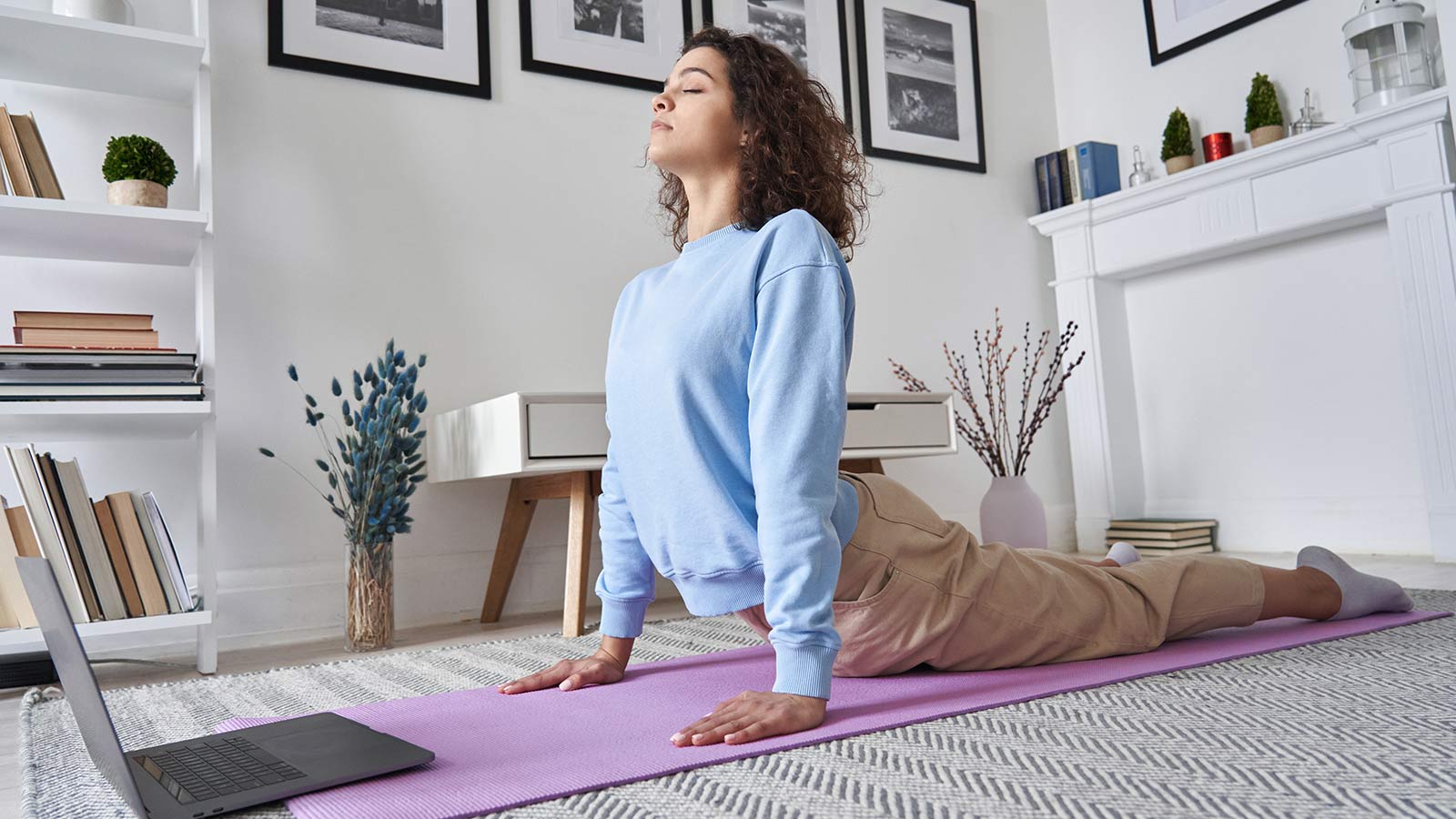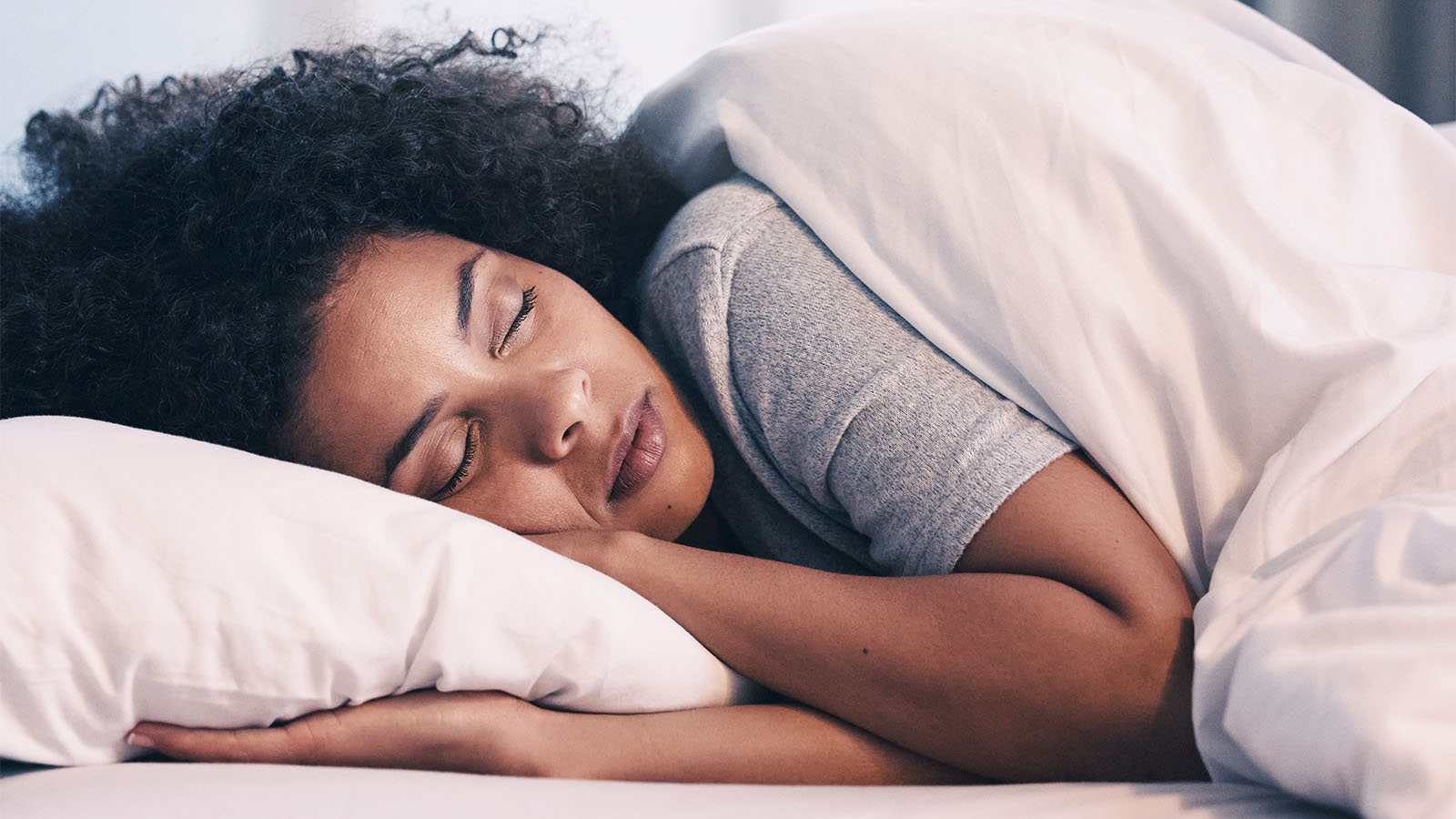Put Lower Back Pain Behind You With This Ten-Step Guide
Whether caused by sudden injury or the wear-and-tear of aging, lower back pain is a common condition. Virtua spine surgeon Robert Greenleaf, MD, offers these ten tips you can try today that will help relieve and prevent back pain of all kinds.

By Robert Greenleaf, MD, Spine Surgeon, Virtua Orthopedics & Spine
Lower back pain is extremely common and one of the top reasons for missed workdays. That’s because the lower back supports the weight of the upper body and is subject to a lot of stress and strain—especially during everyday movements like lifting and twisting.
One of two things typically causes lower back pain: a sudden injury or the wear and tear of aging, arthritis and physical activity. No matter the cause of your lower back pain, here are 10 recommendations that can help you relieve it and prevent future problems.
1. Maintain correct posture during activities to avoid back pain.
To protect your lower back from injury, it’s important to maintain proper posture when performing physical activities—especially if you play sports or have a job that requires repetitive motions. Avoid slouching as much as possible and aim to keep your spine erect. When lifting, bend and straighten from the knees, not the waist. And be sure to move your hips when twisting from side to side.
2. Maintain correct posture when sitting.
You can avoid lower back pain by maintaining proper posture when sitting. If you have a desk job, keep your feet planted on the floor and use a chair that provides lower back support. Also, avoid hunching forward to see your computer screen and reaching far in front of you to use your mouse or keyboard.
3. Use ice or heat.
If you’ve experienced a lower back injury, applying ice within the first 24-72 hours afterward can help ease pain and reduce swelling. After that, switch to heat to help relax tight muscles. Heat also is useful for chronic lower back pain that isn’t related to an acute injury. Regardless of whether you're using heat or ice, you shouldn’t use it for more than 20 minutes at a time. This will help prevent skin damage.
4. Stretch your muscles.
Stretching is a great way to relieve chronic and acute lower back pain—and prevent future lower back problems. Because the muscles in the back extend in many different directions, it’s important to do a variety of stretches. Basic lower back stretches include:
- Lying flat on your back and pulling your knees to your chest.
- Lying flat on your back with your arms outstretched in a “T” position, bending one knee and twisting in the direction of your straight leg while trying to touch your bent knee to the floor (called a spinal twist).
- Lying on your stomach with your arms stretched overhead and lifting your chest and/or legs off the floor (called a “superman”).
5. Wear proper footwear.
Supportive footwear can improve your overall posture, increase stability and decrease your risk of suffering from lower back pain. Make sure you wear the appropriate footwear for the activity you are performing (sneakers for running or exercising, or boots for doing construction work). Although occasionally wearing unsupportive shoes such as flip flops or high heels is unlikely to cause lower back problems, prolonged or frequent wear can put increased pressure on your lower spine.
6. Maintain a healthy weight.
Being overweight can increase the strain on your lower back, especially as you age. Follow your doctor’s recommendations for diet and exercise and aim to keep your weight within a healthy range for your height.
7. Stay active.
If you're dealing with lower back pain, you should resist the temptation to stay in bed. In fact, moving around and engaging in gentle stretching can help your lower back muscles heal faster. However, carefully move within your comfort zone and avoid strenuous activities that cause more pain.
8. Consider using over-the-counter pain relievers.
Over-the-counter pain relievers—especially anti-inflammatory drugs such as aspirin, ibuprofen, and naproxen—are the workhorses for lower back injuries because they also reduce swelling. To get the maximum benefit from these medications, it’s important to take them round-the-clock for several days in a row when you’re experiencing lower back pain. These medications aren’t safe for everyone, so check with your doctor before taking them.
9. Get a massage.
In addition to stretching, massage is another way to help lengthen shortened muscles and relieve tension in the lower back. Healthy lower back muscles lead to increased overall stability, which can help prevent future lower back problems.
10. Sleep on a quality mattress.
Lower back pain sufferers usually benefit from sleeping on a medium-firm mattress. However, your preferred sleep position also should influence your mattress selection. To maintain good posture, side sleepers should select a softer mattress. Back and stomach sleepers should choose a firmer mattress. If you have lower back pain, it’s a good idea to avoid sleeping on your stomach altogether.
If your lower back pain doesn’t improve after 4 to 6 weeks of home care using these suggestions, you should see your doctor. You also should contact your doctor right away if you have any “red flags,” including:
- A history of cancer or a recent infection
- A recent fall or other acciden
- Extreme fatigue
- Rapid weight loss
- Signs of infection, such as fever, chills, sweats
- Nerve problems, such as shooting pain, numbness or tingling
- Changes in bowel or bladder function
Other options for treating lower back pain may include physical therapy, pain management with cortisone injections or, in certain cases, surgery. Although lower back surgery can be beneficial for patients who are experiencing nerve problems and injured discs, it’s not typically recommended for patients with other types of lower back pain. There are many options for treating back pain, and at Virtua Orthopedics & Spine, we'll assess your unique needs and tailor your care plan to meet them.
Take our Virtua Orthopedics & Spine back pain quiz to determine if it might be time to see a spine specialist about your back pain, or call 856-246-4272 to request a consultation with a Virtua spine specialist.
There's So Much More to Explore
Discover expert insights, inspiring stories, health tips, and more by exploring the content below!

At-Home Colon Cancer Tests vs. Colonoscopy: Which Screening Option Is Right for You?

8 Signs It's Time to See a Gastroenterologist

How the Unique Stages of a Woman's Heart Affect Her Health

8 Stretching and Balancing Exercises for Older Adults

How Weight-Loss Surgery Can Improve Diabetes, Heart Health, and More

Knee Replacement Rehab: 7 Exercises to Restore Your Strength and Range of Motion

COPD vs. Asthma: Understanding the Difference in Symptoms

Bioidentical Hormone Replacement Therapy Pellets: Relief for Menopause and Andropause Symptoms

Why Is Sex Painful During Pregnancy? Pelvic Congestion Syndrome Explained

Don't Drink Alcohol? You Could Still Get Fatty Liver Disease

What Is the Difference Between Palliative Care and Hospice Care?

How to Exercise Safely with Asthma: Tips, Triggers, and Rescue Inhaler Use

How to Relieve Bloating Fast: Simple Tips for Quick Comfort

How to Tell the Difference Between Cold, Flu, and COVID-19

Jill Travels From Delaware to South Jersey for Advanced Lung Care

4 Exercise Tips to Help You Reverse High Blood Pressure

From Exhaustion to Empowerment: Tracy's Hormone Replacement Therapy Success Story

Why on Earth Am I Always So Cold?

Timely Heart Care During a Heart Attack Helps Joe Feed the Community

Allegra Is Thriving With Crohn's Disease

The Best and Worst Foods for Acid Reflux

How to Manage IBS Symptoms and Feel in Control Again

5 Types of Lung Disease: Symptoms, Causes, and Prevention Tips

Foods to Enjoy and Avoid for GLP-1 Heartburn

3 Reasons Why Now's the Time to Find Relief From Varicose Veins

Baseball Coach Turns Male Breast Cancer Surprise into Personal Mission

The Brain Health Checklist: 11 Questions Everyone Should Ask

From Caregiver to Patient: Robotic Surgery Relieves Teresa's Knee Pain

How to Get and Stay Healthy This Fall

How to Reverse Prediabetes and Prevent Type 2 Diabetes

6 Ways to Get More Out of Your Daily Walk

Young Breast-Cancer Survivor Has New Hope for Healthy Future

Is Cancer Hereditary? What You Need to Know About Your Genetic Risks

Tara's Story: From Debilitating Uterine Fibroid Pain to a Half-Marathon Medal

Is Your Post-Pregnancy Belly Bulge a Sign of Diastasis Recti?

Prevent Yard Work Injuries: Tips for Mowing, Gardening, and Raking

Is Your Daily Walk Making You Really Sore?

IBS and Alcohol: Can You Still Enjoy a Drink?

Focus on Mental Health Is Key Part of Andrew's Weight-Loss Journey

What You Need to Know About Epilepsy

'Feeling Joy Again': ECT Brain Stimulation Therapy Restores Ashley's Well-Being

Not Just for Wrinkles: Botox Injections Promote Improved Bladder Control

5 Best Biking Trails In South Jersey

How to Stay Cool and Prevent Heat Illness All Summer Long

What Happens to Your Body When You Don't Get Enough Sleep?

5 Key Facts About Proton Therapy for Cancer Treatment

Mood Swings vs. Mood Disorders: Know the Signs and Get Help
Are emotional ups and downs disrupting daily life? Learn common signs of mood disorders, and when to talk to a doctor about diagnosis and treatment options.

4 Foolproof Pelvic Floor Strengthening Exercises for Women

What to Expect During Perimenopause

Protect Yourself From Tick Bites and Lyme Disease

6 Tips to Tame Your Spring Allergies

Do You Know the Signs and Symptoms of Uterine Fibroids?

How Are Uterine Fibroids Treated?

How Can I Prevent Bone Loss and Osteoporosis?

How Do You Manage the Side Effects of Weight-Loss Medications?

A Woman’s Four-Step Guide to Fight Back on Back Pain

What You Need To Know About Carpal Tunnel Syndrome

The Truth About Menopause, Weight Gain, and Belly Fat

Shedding Light on Lesser-Known Menopause Symptoms and Solutions

Debunking The Myths About Vaginal Dryness
Inside Look at Blood Vessels Aids PAD Treatment
Denise Davis: Pay Attention to Your Heart Health

What You Need To Know About Stroke Treatment

10 Smart Ways to Manage Your Diabetes

Signs You May Have Chronic Kidney Disease

5 Essential Winter Foot Care Tips When You Have Diabetes

Sweet Music: Trust, Teamwork Save Justin from Heart Attack

Complex Heart Surgery Nets James a Lifelong Friend

Hepatitis C Kidney Transplant a Blessing For Lee Manns

7 Reasons Why You Want Your Surgeon to Be an Expert in Robotics

Colitis Symptoms Under Control, Jennifer Is ‘Living My Best Life’

How Do I Care for a Wound that Won't Heal?

Five Back Pain Risk Factors That You Should Know

Is My Back Pain Normal, or Is It Spinal Stenosis?

Robotic Hernia Surgery Combines Innovative Techniques With Faster Recovery Times

5 Back Stretches for the Work-From-Home Workweek

How Does Breast Density Affect Your Mammogram?

Menopause: New Insights Into the Power of Hormone Replacement Therapy

Signs You Should Get Treated For Vein Problems

One New Heart Valve Saves Two Lives in the Tritten Family

What You Need to Know About Heart Failure
Lung Valve Surgery Relieves COPD, Emphysema Symptoms

4 Easy Ways to Treat and Prevent Runner's Knee

Lung Screening, Robotic Technologies Get Pat Kicking Up Her Boots Again

Breast Cancer Diagnosis Inspires Catherine to Help Others

Jasmine’s On-Air and Pain-Free After Gallbladder Surgery

When Should I See a Doctor About My Knee Pain?

Quick Action Leads to Jesse's Recovery From Stroke

A Non-Athlete’s Guide to Shoulder Overuse Injuries
Shoulder problems aren’t limited to athletes. Virtua orthopedic surgeon Sean McMillan, DO, explains shoulder overuse injuries and prevention in this article.

Put Lower Back Pain Behind You With This Ten-Step Guide

Wide-Awake Hand Surgery Speeds Recovery, Puts Control in Patients' Hands

South Jersey Veteran Thrives After Cross-Country Kidney Donation
Working from Home? Take a Quick Break to Stretch Your Wrists

3 Ways to Avoid Knee Pain

When Should I See a Doctor for My Hip Pain?

When Should I See a Doctor About My Shoulder Pain?

Is My Back Pain Normal, or Is It Sciatica?

Is My Back Pain Normal, or Is It a Herniated Disk?

When Is It Back Pain, and When Is It Something More?

Watchman Heart Device: a Technological Breakthrough for Blood Clot Prevention

Albert's Emergency Cardiac Surgery Is a 'Story of a Lifetime'

What Can I Do Right Now About My Aching Back?

How Do I Get Rid of This Back Pain for Good?

Can Your Gut Health Affect Your Heart?

When Should I Be Worried About My Neck Pain?
Advanced Heart Failure Therapies Get Bernadine Back to Full Speed

Sarah Wins Back Her Health After Crohn's Disease Diagnosis

Overcoming Addiction, Philip Now Sees More Positive Side to Life
Firefighter's Successful Lung Cancer Care at Virtua
A Lung Screening Put Teresa Back in the Race

A Breast Self-Exam Saved Kristen's Life

Early Treatment is Best to Relieve Hemorrhoid Symptoms

The Top 10 Foods For A Healthy Diabetes Diet

Keeping the Beat: Advanced Heart Surgery for Aortic Aneurysm

Are You At Risk For Chronic Kidney Disease

Local Pastor Makes Kidney Health Mission of Ministry

What’s the Difference Between Type 1 and Type 2 Diabetes?

All for Bear: Dan Loses Weight to Be His Son’s Kidney Donor

Augmented-Reality Surgery Has Bobby Back on Stage, Rocking His New Hip

Hyperbaric Wound Therapy Puts Joette Back in Motion

Robotic Hernia Repair Renews David's Active Lifestyle

